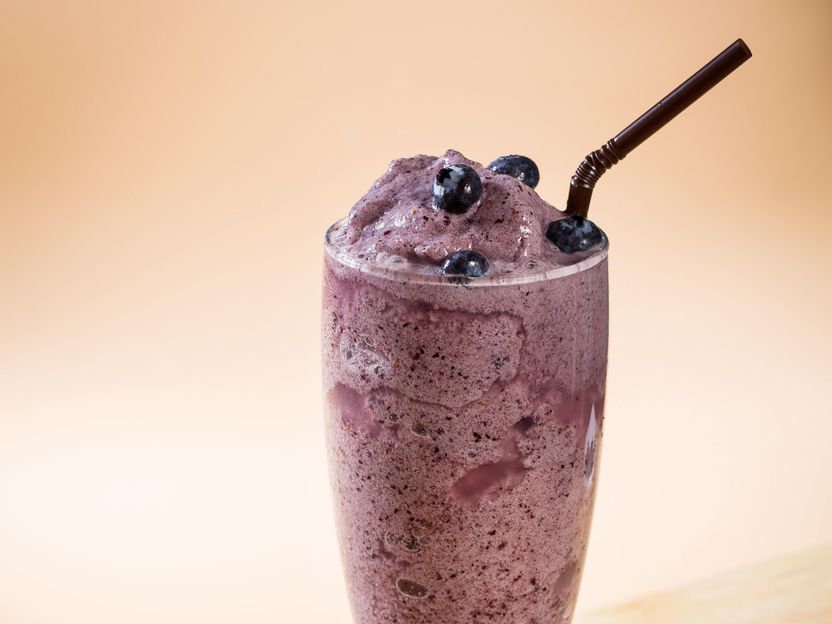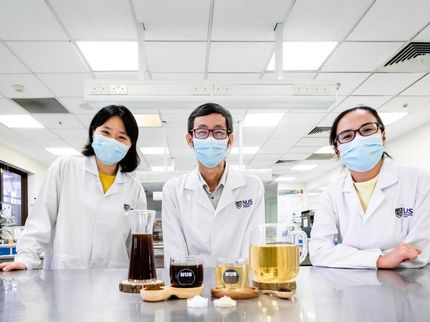Milk protein could help boost blueberries' healthfulness
Advertisement
Pairing blueberry pie with a scoop of ice cream is a nice summer treat. Aside from being tasty, this combination might also help people take up more of the "superfruit's" nutrients, such as anthocyanins. Researchers reporting in ACS' Journal of Agricultural and Food Chemistry show that α-casein, a protein found in cow's milk, helped rats absorb more blueberry anthocyanins and their byproducts, boosting accessibility to these good-for-you nutrients.

unsplash
In studies, anthocyanins have been shown to have antioxidant properties, lower blood pressure and reduce the risk of developing some cancers. However, only small amounts of these nutrients are absorbed from blueberries during digestion, despite their abundance in the fruit. Previous researchers have reported that consuming foods with ingredients such as citrus pectin, capcasin, capsicate and some proteins improve the uptake of anthocyanins. For instance, Bin Li and colleagues found that α-casein and β-casein proteins from cow's milk protected blueberry anthocyanins in simulated digestion experiments. Now, this team wanted to see whether α-casein could help increase the absorption of blueberry anthocyanins in vivo.
The researchers fed rats purified blueberry anthocyanin extracts, adding α-casein to the solution given to one group of rats. During the next 24 hours, anthocyanin and metabolite concentrations were 1.5 to 10.1 times higher in the α-casein group than in the control rats. When examining α-casein's molecular structure, the researchers observed that its amino acids allowed it to interact with and encapsulate the anthocyanin molecules, improving their stability in the intestines and allowing for better transport into the bloodstream. While the α-casein protein used in these experiments was derived and purified from milk, the results may not be the same for whole milk because its fats and sugars could impact absorption, the researchers explain. They say their next step is to conduct similar tests with human subjects.
Most read news
Topics
Organizations
Other news from the department science

Get the food & beverage industry in your inbox
By submitting this form you agree that LUMITOS AG will send you the newsletter(s) selected above by email. Your data will not be passed on to third parties. Your data will be stored and processed in accordance with our data protection regulations. LUMITOS may contact you by email for the purpose of advertising or market and opinion surveys. You can revoke your consent at any time without giving reasons to LUMITOS AG, Ernst-Augustin-Str. 2, 12489 Berlin, Germany or by e-mail at revoke@lumitos.com with effect for the future. In addition, each email contains a link to unsubscribe from the corresponding newsletter.






























































